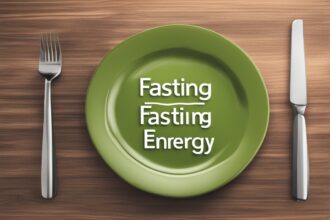Intermittent fasting has gained immense popularity as a lifestyle choice for improving health, energy, and mental clarity. Among its many benefits, the concept of an intermittent fasting morning boost stands out as a powerful way to kickstart your day with heightened focus and vitality. By strategically timing your eating windows, you can harness the natural rhythms of your body to optimize energy levels right from the moment you wake up. In this post, we’ll explore how intermittent fasting can transform your mornings and provide actionable tips to maximize this energy surge.
What Is Intermittent Fasting and How Does It Work?
Intermittent fasting (IF) is an eating pattern that alternates between periods of eating and fasting. Unlike traditional diets that focus on what you eat, IF emphasizes when you eat. Common methods include the 16/8 approach (fasting for 16 hours and eating within an 8-hour window) or the 5:2 method (eating normally for five days and restricting calories on two non-consecutive days). During fasting periods, your body shifts from using glucose as its primary energy source to burning stored fat, a process known as ketosis. This metabolic switch is one of the key drivers behind the intermittent fasting morning boost, as it can leave you feeling alert and energized without the need for a heavy breakfast.
For more insights on the science behind fasting, check out our detailed guide on Fasting Basics for Beginners.
Why Mornings Are Ideal for an Energy Boost with Intermittent Fasting
Mornings are a critical time for setting the tone of your day, and intermittent fasting can amplify your natural energy cycles. When you fast overnight (as part of a 16/8 plan, for example), your body continues to burn fat for fuel while you sleep. By extending this fast into the early morning, you maintain elevated levels of ketones—energy molecules produced during fat breakdown—that can enhance mental clarity and focus. This is the essence of the intermittent fasting morning boost: a state of heightened alertness without the sluggishness often associated with large meals.
Additionally, fasting in the morning aligns with your circadian rhythm, supporting hormonal balance and reducing the insulin spikes that can occur after eating. Learn more about how fasting impacts your body clock in our post on Fasting and Circadian Rhythm.
Practical Tips to Maximize Your Intermittent Fasting Morning Boost
To fully experience the intermittent fasting morning boost, it’s important to adopt habits that complement your fasting schedule. Here are some actionable strategies:
- Stay Hydrated: Drink water first thing in the morning to rehydrate after hours of fasting. Add a pinch of sea salt or a splash of lemon for electrolytes.
- Engage in Light Activity: A short walk or stretching session can stimulate blood flow and enhance the energizing effects of fasting.
- Delay Your First Meal: If you’re following a 16/8 plan, push your eating window to start later (e.g., noon), allowing your body to remain in a fasted state longer for sustained energy.
- Avoid Stimulants Initially: While black coffee or tea is allowed during fasting, try to limit intake early on to let your body’s natural energy mechanisms shine.
For additional morning routine ideas, see our article on Morning Energy Hacks.
Common Challenges and How to Overcome Them
While the benefits of an intermittent fasting morning boost are undeniable, some people face challenges when starting out. Morning hunger pangs, irritability, or low energy can occur as your body adjusts to a new eating schedule. To combat hunger, focus on nutrient-dense meals during your eating window to ensure you’re getting enough calories and nutrients. If you feel sluggish, consider shortening your fasting window temporarily (e.g., from 16/8 to 14/10) until your body adapts.
Another common issue is overeating after a fast, which can counteract the energy benefits. Plan balanced meals with protein, healthy fats, and complex carbs to maintain stable blood sugar levels. For meal planning tips, read our guide on Balanced Meal Plans for Fasting.
Who Should Try Intermittent Fasting for Morning Energy?
Intermittent fasting isn’t a one-size-fits-all solution, but it can be particularly beneficial for individuals seeking a natural way to enhance morning energy without relying on caffeine or heavy breakfasts. It may appeal to busy professionals, students, or anyone looking to improve focus and productivity early in the day. However, certain groups—such as pregnant women, individuals with medical conditions like diabetes, or those with a history of eating disorders—should consult a healthcare provider before starting IF.
If you’re curious about how fasting affects different demographics, explore our post on Fasting Across Age Groups.
Long-Term Benefits of Morning Fasting for Energy and Beyond
Beyond the immediate intermittent fasting morning boost, adopting this practice long-term can yield numerous health benefits. Studies suggest that IF may improve insulin sensitivity, support weight management, and even promote cellular repair through a process called autophagy. Over time, you may notice not only sustained morning energy but also better overall stamina, improved mood, and reduced brain fog. Consistency is key—stick to a fasting schedule that works for you, and monitor how your body responds to make adjustments as needed.
Disclaimer: This content is for informational purposes only and not a substitute for professional medical advice. Always consult with a healthcare professional before starting any new diet or lifestyle change, especially if you have pre-existing health conditions.






